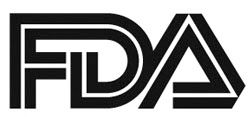Two FDA Fast Track Designations Granted to ALX148 for HNSCC and Gastric/GEJ Adenocarcinoma
The FDA has granted Fast Track Designation to ALX148 for the first-line treatment of patients with head and neck squamous cell carcinoma, and for the second-line treatment of patients with HER2-positive gastric or gastroesophageal junction carcinoma.

The FDA has granted Fast Track Designation to ALX148 for the first-line treatment of patients with head and neck squamous cell carcinoma (HNSCC), and for the second-line treatment of patients with HER2-positive gastric or gastroesophageal junction (gastric/GEJ) carcinoma, according to a press release from AXL Oncology.1
The Fast Track Designation is supported by results from the phase I clinical trial of ALX148 plus either pembrolizumab (Keytruda) and trastuzumab. Data were presented at the 2019 Society for Immunotherapy of Cancer (SITC) Annual Meeting.
As of the data cut-off date of September 23, 2019, the study included 82 patients with advanced malignancies; of them, 30 received ALX148 plus trastuzumab (Herceptin) and 52 received ALX148 plus pembrolizumab (Keytruda). There were 19 patients with HER2-positive gastric/GEJ cancer and 20 patients with HNSCC included in the presentation.2
In the cohort of patients with HER2-positive gastric/GEJ cancer, the objective response rate (ORR) observed was 21% and the disease control rate (DCR) was 26%. Among the patients with HNSCC, the ORR was 20% and the DCR was 30%. In a subgroup of patients with HNSCC who were naïve to treatment with immune checkpoint inhibitors (n = 10), the ORR was 40% and the DCR was 40%.
ALX148 was well-tolerated in both regimens with no maximum tolerated dose reached. The treatment-related adverse events that occurred during the study were mostly of low grade and frequency.
The study included an analysis of tumor biopsies and blood samples to identify tumor-infiltrating immune cells and molecular signatures. The preliminary results from the biopsies showed an increase of tumor-associate macrophages and lymphocytes in the intra-tumoral and peri-tumoral regions following treatment with both ALX148 combination regimens.
In the study, patients were given ALX148 infusions weekly or every 2 weeks alone or in combination with either pembrolizumab, trastuzumab, or other anti-cancer agents. The other experimental arms in the dose-escalation study included ALX148 plus rituximab (Rituxan); ALX148 plus fluorouracil and platinum chemotherapy; and ALX148 plus trastuzumab, ramucirumab (Cyramza), and paclitaxel. The primary end point of the study was dose-limiting toxicities.
The eligibility requirements were a histological or cytological diagnosis of advanced solid tumor malignancy or relapsed/refractory non-Hodgkin lymphoma; adequate bone marrow, renal, and liver function; and adequate performance status. Patients with known symptomatic central nervous system metastases or leptomeningeal disease requiring steroids were excluded from the study, as were those who received previous high-dose chemotherapy requiring allogeneic stem cell rescue and those who had prior treatment with a CD47 or signal regulatory protein α-targeting agent.
“The FDA’s decision to grant Fast Track designation to ALX148 is an important recognition of ALX Oncology’s promising clinical data. This designation reflects the potential for ALX148 to be an important advancement in the treatment of patients with HNSCC and HER2-positive gastric/GEJ cancer,” said Sophia Randolph, MD, PhD, chief medical officer of ALX Oncology. “We are encouraged by the initial data from our phase I clinical trial that showed a 40% objective response rate in checkpoint inhibitor-naïve patients [with HNSCC] whose tumors had progressed on prior platinum therapy, and a 21% ORR in gastric/GEJ patients where all responders’ disease had progressed upon at least 1 prior anti-HER2 containing regimen. We look forward to working closely with the FDA on the clinical development of ALX148 for patients with cancer.”
References
- ALX Oncology’s ALX148 receives two Fast Track Designations from FDA for the treatment of patients with head and neck squamous cell carcinoma and patients with gastric or gastroesophageal junction adenocarcinoma [news release]. Dublin, Ireland and Burlingame, California: AXL Oncology; February 18, 2020.https://bwnews.pr/2P52cH3. Accessed February 18, 2020.
- ALX Oncology presents clinical biomarker data from ALX148 clinical trial solid tumor combination cohorts at the 34th annual meeting of the Society for Immunotherapy of Cancer (SITC) [news release]. Dublin, Ireland and Burlingame, California: AXL Oncology; November 6, 2019.https://bwnews.pr/39HAE28. Accessed February 18, 2020.
T-DXd Combinations Effective in HER2+ Gastric and GEJ Cancer
September 14th 2024Findings from the DESTINY-Gastric03 study support the further exploration of the antibody-drug conjugate trastuzumab deruxtecan for the first-line treatment of patients with advanced HER2+ gastric, esophageal, and GEJ cancers.
Read More